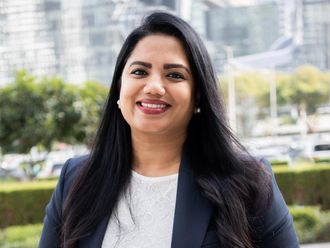Dubai: The global ad industry has reasons to feel aggrieved — you put in the clients’ ad dollars on a Facebook or a Google in good faith only for them to set up operations that directly compete against you.
All of the digital giants now have in-house capabilities — or acquiring them — that allows them to directly source or deploy digital ads and — in these days of instant tracking — inform clients of how much bang they are getting for their buck.
Their sales pitch suggests that there is no one better placed to harness the power of ads/campaigns on digital media than the very creators of the portals. Not surprisingly, traditional media buying giants are not having any of that.
“Clients like to have a one-stop solution if this brings trading advantages versus negotiating with various media houses,” said Federico De Nardis, CEO for the Europe, Middle East and Africa operations of Maxus. “But they also understand the risks involved in consolidating all their budgets with one player.
“As data becomes more and more relevant to clients, they do not want to give all the power to a few global players such as FB or Google. Instead, I believe, it’s more relevant than ever to rely on the right media agency partner to get the most out of the global digital giants.
“They are investing in innovation constantly and at the same time negotiating with traditional media owners who are still able to reach wide and varied target groups with credibility and familiarity.”
His agency is not leaving it at that. Maxus is investing to develop a ‘smart data’ proposition — “Being able to organise, digest, analyse real-time data streams and come up with relevant business insights is the key competitive advantage,” he added.
De Nardis — who is in Dubai for the annual summit of the BPG network — does not want Maxus to be tagged as a “traditional” agency either. “Maxus is the only media agency network born in the digital age,” he said.
“It is true that digital/social media is more “up close and personal” with the consumer than any other media channel. This means a greater capture of data base, consumer insights and behaviour and that is where the real power is. And consumers will allow this to happen if they feel that they are treated well, and they receive something in return.
“The challenge today is on the advertiser and agency partners to understand how to create a new relationship with new consumers, (and) how to exploit all these data resources in favour of the consumers.”
Many industries — publishing, travel and music — have felt the power of transformation fast-tracked by digital, but De Nardis believes that retail could be next. “This is one industry which is key for most FMCG (fast moving consumer goods) companies, though maybe over a longer period. The opportunities linked to this transformation are unparalleled — at Maxus we are already working at communication tools to help our clients experiment this in real life.”
And what of mobile marketing? “Be it broadcast messaging, display or on social media it definitely is an effective tool to complete the consumer journey across various mainstream and digital media channels,” De Nardis said.
“When you consider the time we all spend using our mobile devices and the share of investment that mobile is able to get, there is still a significant gap. But it will be covered in the next few years.
“When you consider mobile campaigns though, it is true many of them are mere translations of campaigns developed for other media. Mobile creativity has a great future ... I believe we haven’t seen much as of today.”












